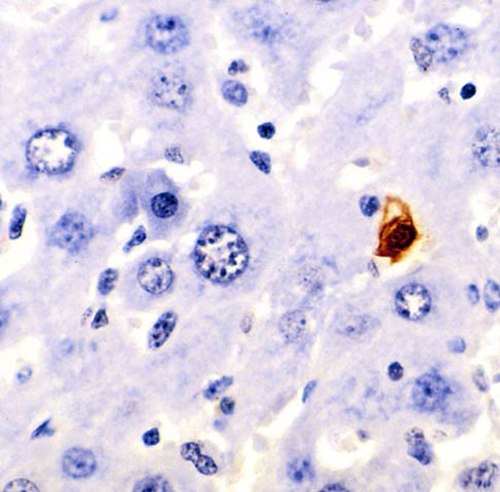Lysisnoun
A gradual recovery from disease (opposed to crisis).
Lysisnoun
(biochemistry) The disintegration or destruction of cells
Lysisnoun
(biochemistry) The breakdown of molecules into constituent molecules
Lysisnoun
(architecture) A plinth or step above the cornice of the podium in an ancient temple.
Lysisnoun
The resolution or favorable termination of a disease, coming on gradually and not marked by abrupt change.
Lysisnoun
recuperation in which the symptoms of an acute disease gradually subside
Lysisnoun
(biochemistry) dissolution or destruction of cells such as blood cells or bacteria
Lysisnoun
the disintegration of a cell by rupture of the cell wall or membrane.
Lysis
Lysis ( LY-sis; Greek λύσις lýsis, from λύειν lýein, ) is the breaking down of the membrane of a cell, often by viral, enzymic, or osmotic (that is, LIT-ək) mechanisms that compromise its integrity. A fluid containing the contents of lysed cells is called a lysate.
Apoptosisnoun
A process of programmed cell death by which cells undergo an ordered sequence of events which leads to death of the cell, as occurs during growth and development of the organism, as a part of normal cell aging, or as a response to cellular injury.
Apoptosisnoun
a type of cell death in which the cell uses specialized cellular machinery to kill itself; a cell suicide mechanism that enables metazoans to control cell number and eliminate cells that threaten the animal's survival
Apoptosis
Apoptosis (from Ancient Greek ἀπόπτωσις, apóptōsis, ) is a form of programmed cell death that occurs in multicellular organisms. Biochemical events lead to characteristic cell changes (morphology) and death.







